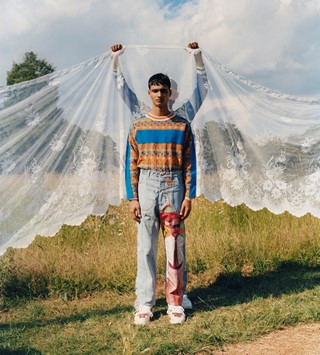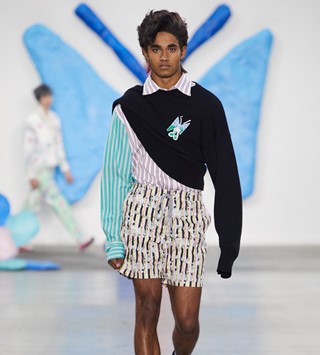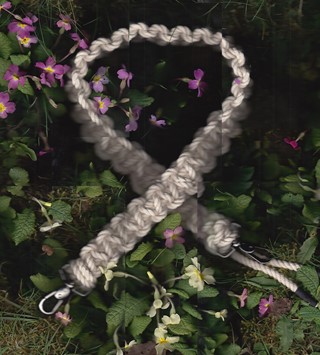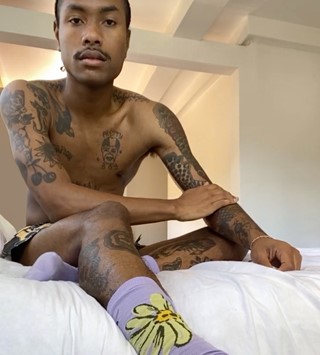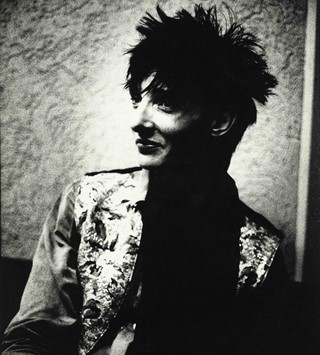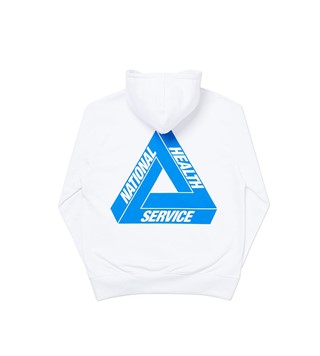Emily Bode may use vintage and antique fabrics but her clothes are distinctly modern
- TextLiam Hess
Name: Emily Bode
Brand: Bode
Location: New York City
Alma Mata: Parsons School of Design
USP: Wardrobe staples crafted from vintage, antique and deadstock fabrics
Instagram: @bode
It’s been said that every stitch tells a story, but it’s rare that your new shirt comes with a tag explaining its provenance. The fabrics repurposed to make New York label Bode’s impeccably cut wardrobe staples could be anything from a rare kimono silk, to a French 19th century gingham, to a New England quilt. “For me it’s not so much about being historical or contemporary as being timeless,” designer Emily Bode tells me. “The clothes themselves are comfortable, they’re founded on utilitarian workwear shapes. The age of my client varies massively. I like to think that people would have responded to my clothes in the same way if I had made them 20 years ago.”
Only three collections in, Bode has already defined a fully-realised vision for her namesake label, using traditional craft fabrics within a distinctly modern silhouette. The seed of each collection comes from her carefully managed archive of antique textiles, of which Bode has an encyclopaedic knowledge – some of them are so rare that even in the label’s infancy, many of the pieces are already collectable. On the other hand, Bode is keen to emphasise that the value lies as much in the fabrication as the eye-catching prints. “A lot of the time people come to my studio looking for the loud pieces, but then when they actually go to buy something, they just want my well-made basic shirts. The fabric is probably what draws someone in, but the fit is what solidifies the purchase.”
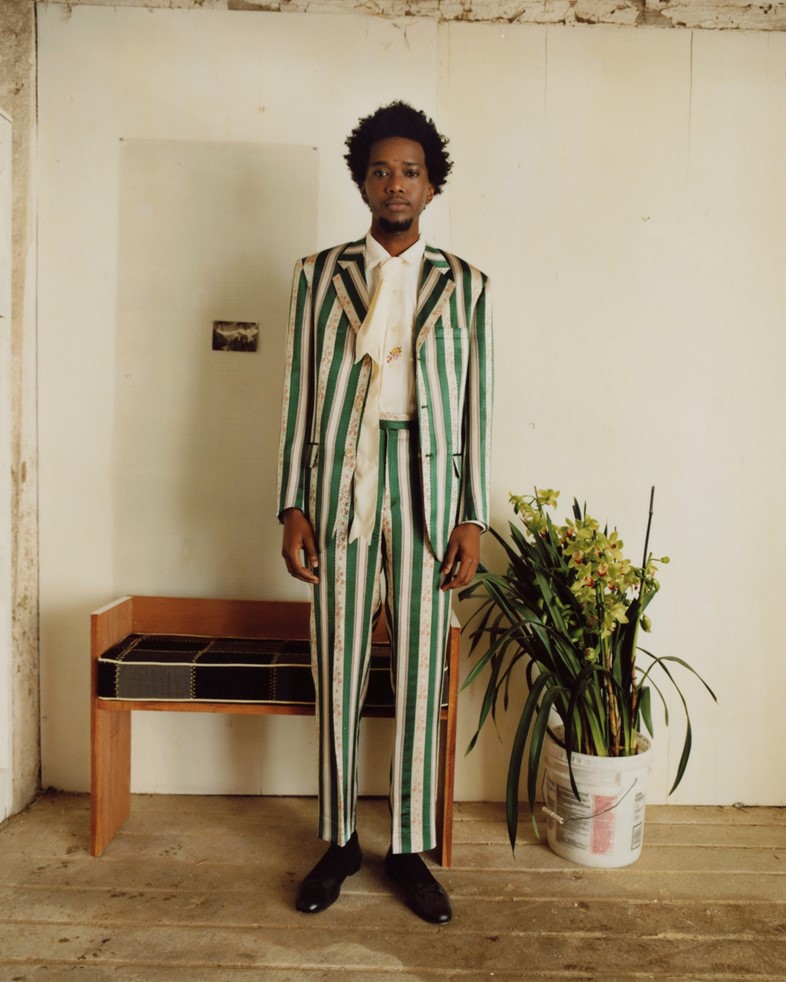
Bode’s own impetus to collect is longstanding. “I started accumulating stuff when I was a little kid,” she says. “I’ve always had my favourite fabrics that I don’t cut, or vintage textiles I keep for inspiration or decoration in my room.” When did this obsession develop into a full-time professional endeavour? “I showed my first collection about 18 months ago, but I didn’t start stockpiling fabrics until about a year ago. We have a room on the Lower East Side, a basement that we keep all of the textiles in. The room will go from being, like, you can’t even walk in it, to then feeling really empty. It ebbs and flows.”
The joy for Bode comes from the eureka moments of discovering these fabrics in the unlikeliest of places. Currently in Paris to meet buyers at fashion week, she has spent every free moment trawling the city’s flea markets. At the latest count, she has 300 pounds of fabric to take back to New York and add to the archive. “I came across a stall where this woman was using this fabric to cover up her bins, it was a really wide gingham and I started visualising this men’s summer shirt right away. It turned out it was from the 1830s, produced in Normandy, and she told me it was super expensive – she was literally using it to cover her garbage!”
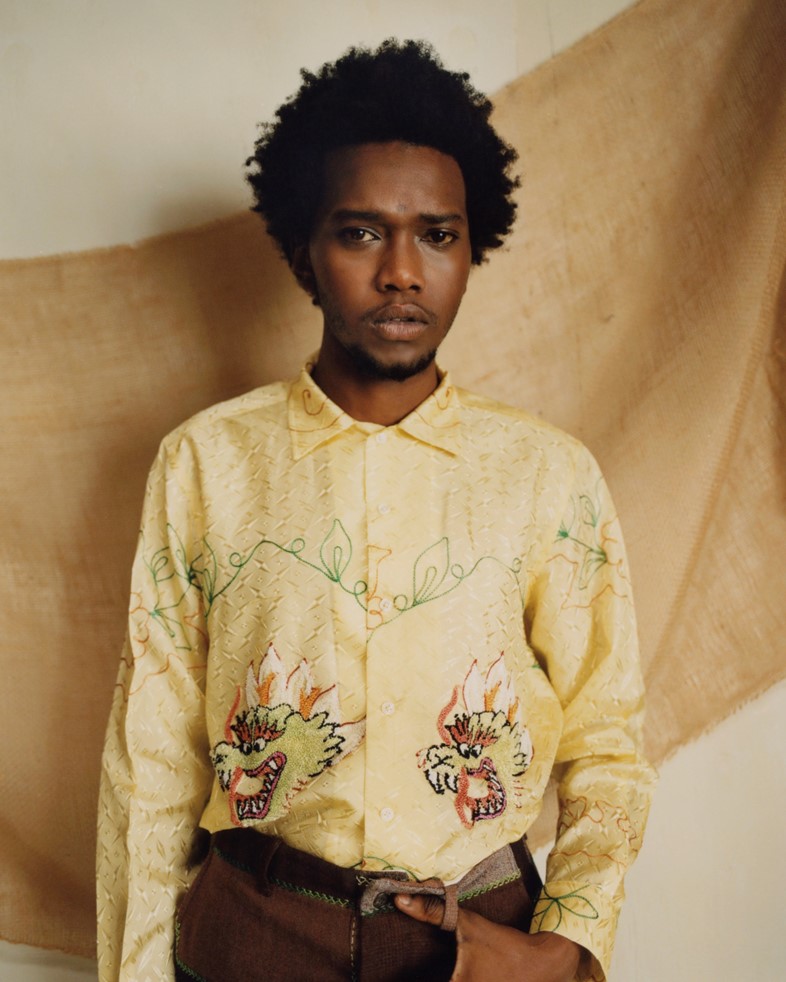
It’s that moment of unexpected desire that Bode aims to recreate for her customer, spinning a charming tale of history and happenstance around every item she produces. After her most recent show at New York Fashion Week Men’s, a review noted the flurry of editors and stylists heading back stage to earmark their favourite one-of-a-kind pieces for personal orders. “I work more on producing individual items for a wardrobe: the way my customer shops is that they fall in love with a single piece and want to know the story behind it.”
Even if it’s clear that each and every piece Bode makes is something to be treasured, this emphasis on craft is something that’s also (if unconsciously, on Emily’s part) well-timed. An increasing number of upstart labels and even big-name brands are choosing to stress the significance of heritage and craftsmanship: whether the recycled local tweeds of John Alexander Skelton, or Jonathan Anderson’s overhaul of Loewe, where pottery and world textiles are now central to the brand’s travel-inflected DNA.
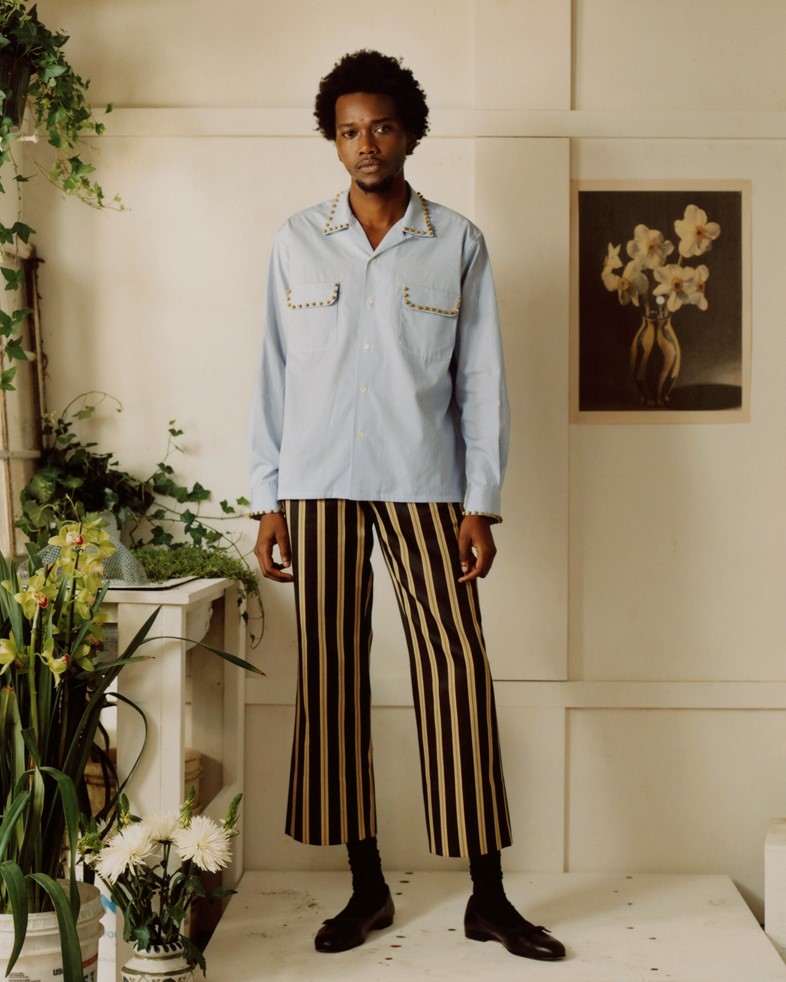
What sets Bode apart is how deeply personal the stories she tells through her clothing are, despite these materials coming from all over the world. Her most recent collection, titled ‘Dear Homer’, is an ode to one of her mentors, a septuagenarian botanist and quilt dealer who lives on Cape Cod. “The whole concept was of a botanist's childhood, and when you’re a child the line between masculine and feminine is more blurred,” she explains, when I mention the more delicate touches of lace and bows in the collection. “I always try to look at what the culture of masculinity is, and the changing perceptions of what masculinity means.”
Bode also studied philosophy alongside menswear, and has rigorous standards for the brand’s ethics as well as its aesthetics. Even though she’s now scaling up to a production run via a factory she has a close relationship with in India, she notes that “we are striving to be the most sustainable brand we can”. “A lot of the fabric we work with is deadstock, nobody is taking the time to mend and nurture these textiles that would otherwise be disposed of. I’m so inspired by them and a lot of the time they’re just going in the garbage.” Fabrics from the past, silhouettes from the present and a sustainable future — a perfect recipe for, as Bode says herself, timelessness.





